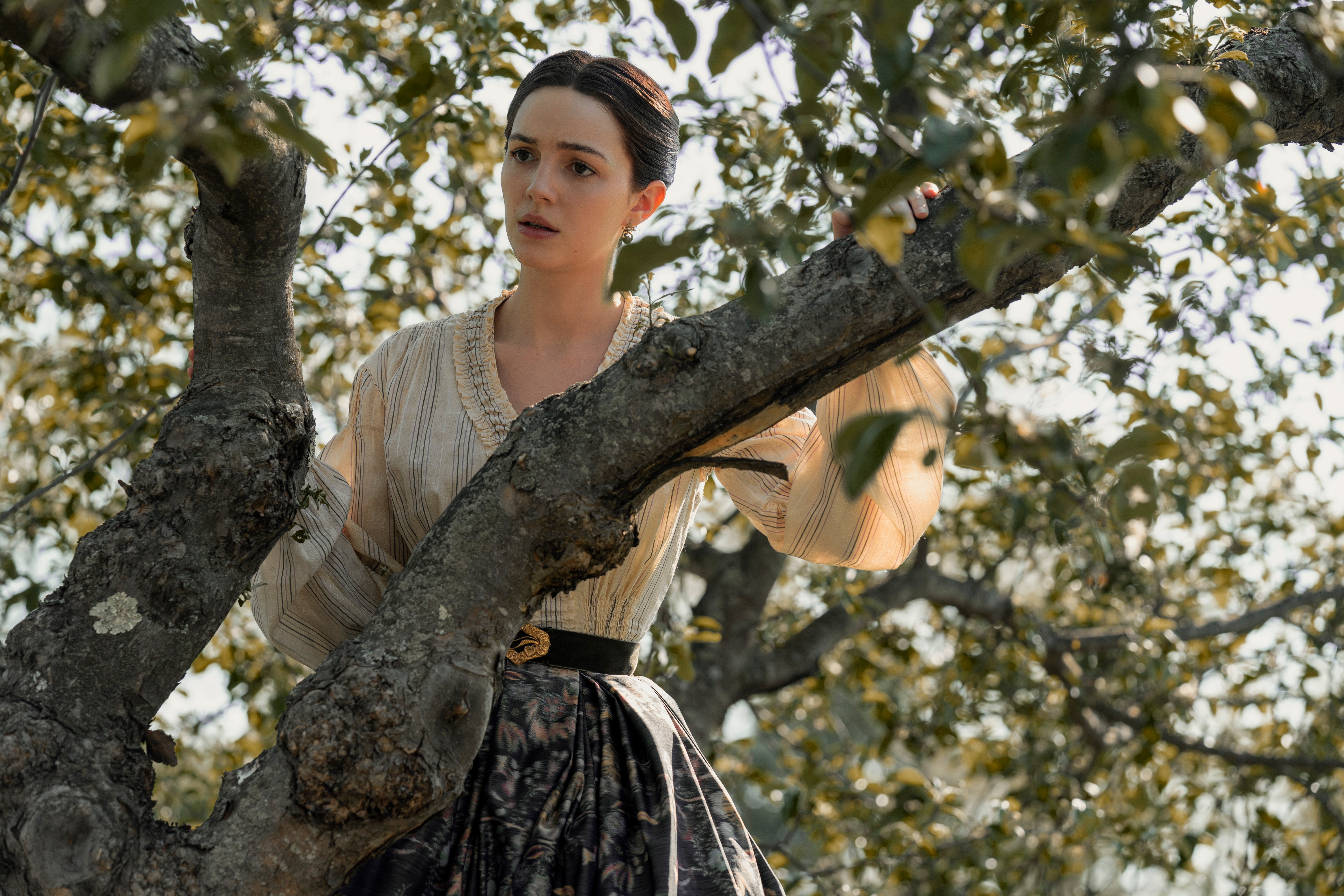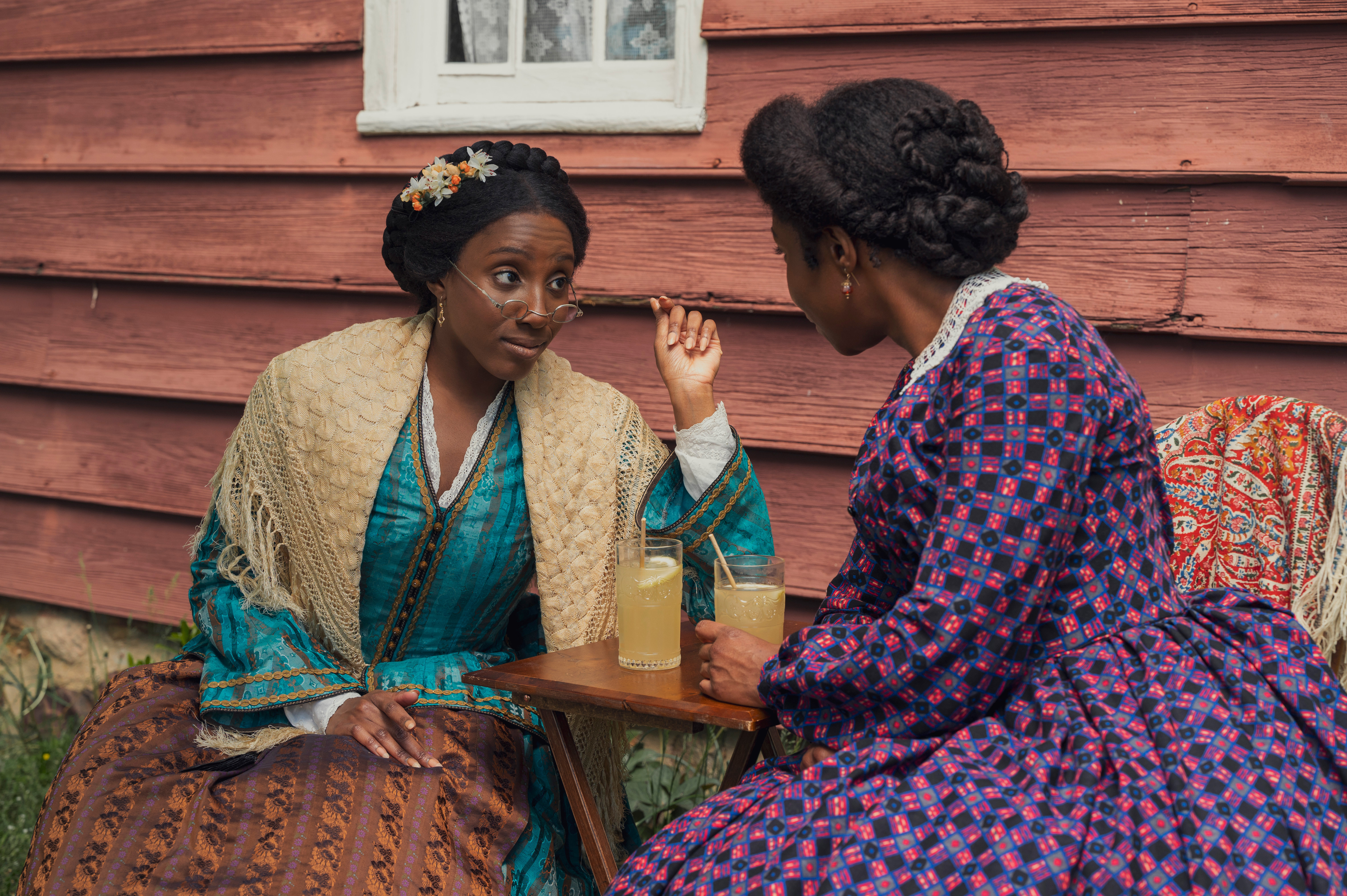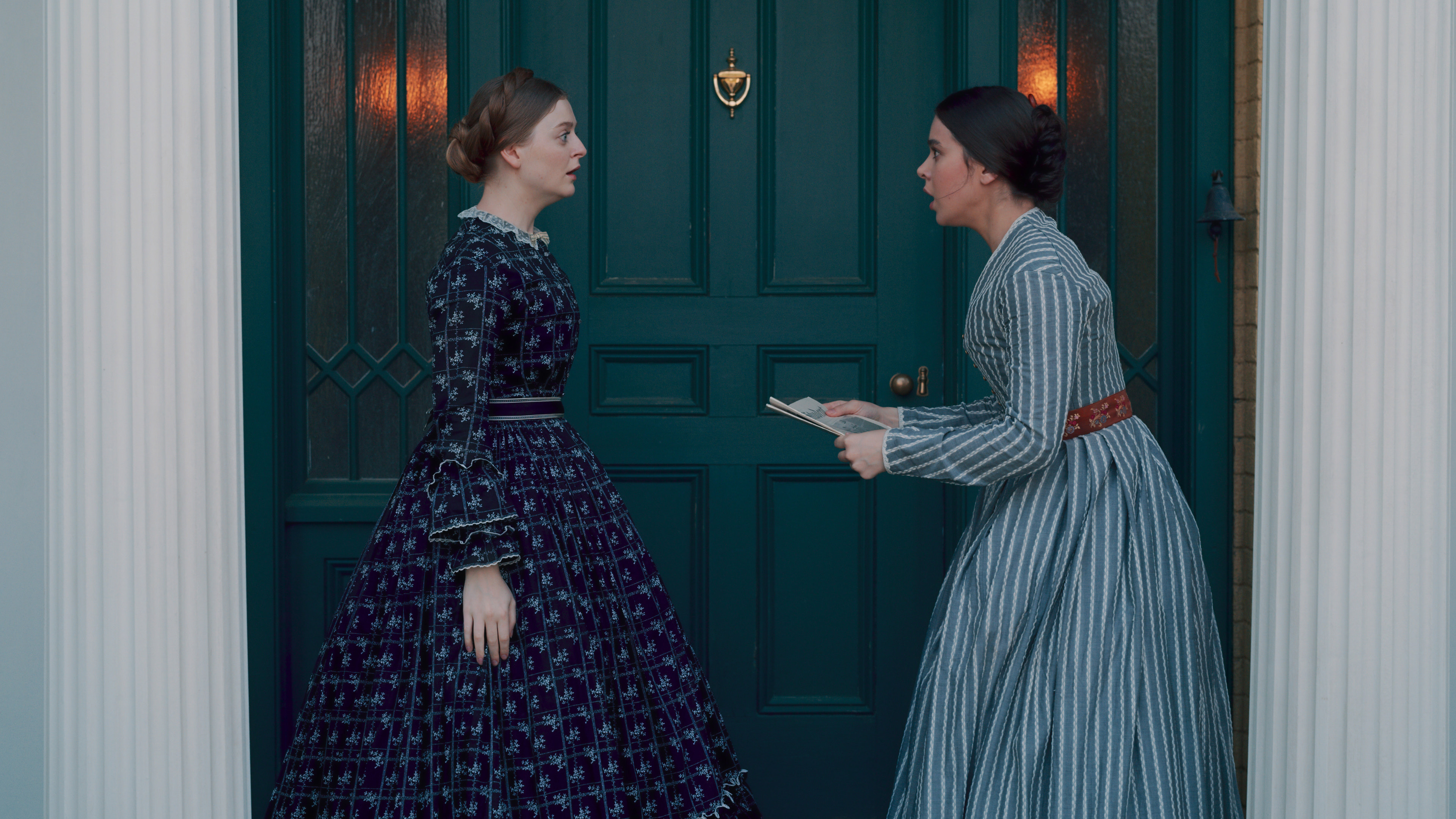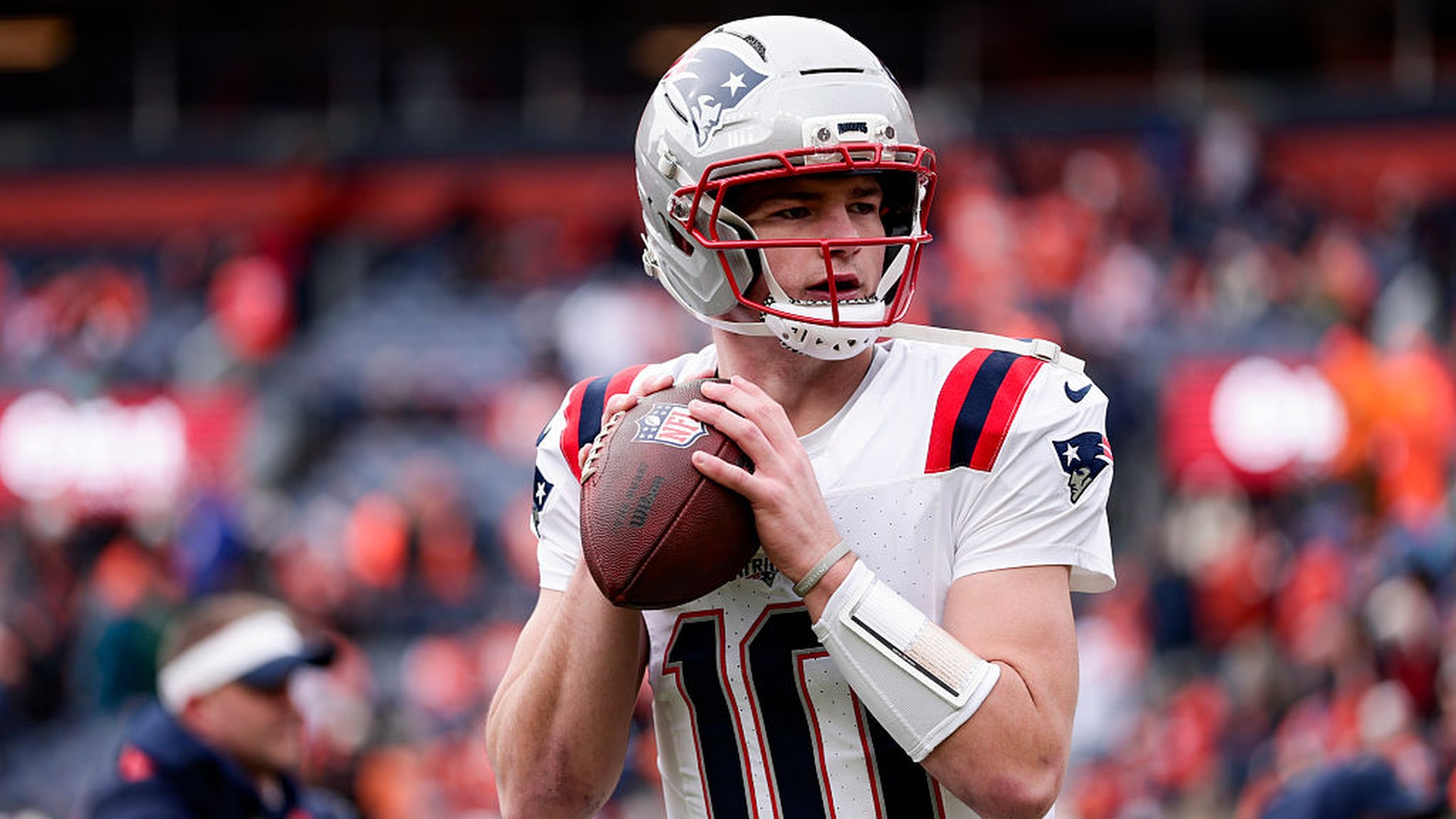What to Watch Verdict
Emily gets a glimpse of her legacy in an emotional, hilarious and deeply affecting episode — a series highlight.
Pros
- +
*Emily and Vinnie's time travel adventure.
- +
*Chole Fineman makes a case for a Sylvia Plath spin-off.
- +
*The parallels between Dickinson and Plath's reputations.
- +
*Henry makes his voice heard.
- +
*A fantastic script from Alena Smith and Ziwe.
Cons
- -
*Nothing to see here.
This post contains spoilers for the Dickinson episode "The Future never spoke." Read our 'Dickinson' season 3 episode 6 review.
Great art is not bound to the period in which it is created and this sentiment is particularly true of the work celebrated in Dickinson. Fame only came to Emily Dickinson after she died — when huge volumes of poems were discovered hidden in a maid’s trunk. This information is the first thing viewers of Alena Smith’s series are told in the opening episode and the knowledge of posthumous appreciation underpins the entire viewing journey.
'Dickinson' season 2 explored Emily’s (Hailee Steinfeld) complex feelings about celebrity, which had been put on the backburner in light of the American Civil War. An unexpected excursion to Amherst in 1955 revisits this previous preoccupation when the appearance of another poet plagued by her reputation offers a complicated image of the future.
Emily has conversed with a "hall of fame" collection of writers from the 19th century — at Sue’s (Ella Hunt) literary salon and in Death’s (Wiz Khalifa) carriage — which has blurred the lines between fantasy and reality. Louisa May Alcott (Zosia Mamet) is the one person who has ticked both imaginary and real conversations boxes but, so far, Emily has only communicated with visionaries whose work she is familiar with. Until now, when a storm sends the Dickinson gazebo into the next century and straight into the path of Sylvia Plath (Chloe Fineman).
Before Emily skips forward by nearly 90 years, she has an emotional encounter with Sue about the state of their relationship. Emily has been tasked with getting water and she is already lamenting being stuck in the wrong time period and this fight exacerbates these feelings. Hilariously, Sue has climbed a tree while waiting for love and yet this is where the whimsy ends. She is still furious that Emily has been sharing her work with a stranger. “I want the mess,” is how Sue captures her desire for something more than Emily’s heart contained within her writing. But there are too many obstacles. Even if Austin (Adrian Blake Enscoe) goes to war it still doesn’t mean they can be together and Emily rejects Sue’s “kiss me” request.

A weeping Vinnie (Anna Baryshnikov) laments lost love and dreams of the world before war killed her prospective husbands. It is only Sue who looks to the present offering up ‘today is all we have” as an appeal to Emily. The future is dizzying and not only because the gazebo spins them into this familiar yet strange landscape. Their house is locked, cars have replaced horses and carriages, and a young woman sporting crimson lipstick mentions a women’s college. Sylvia Plath did go to Smith College and graduated in 1955 (after time off due to mental health issues). The reason she is the perfect 20th-century figure to converse with Emily comes from the fact that both their reputations have been distilled by tragedies.
Sylvia refers to the “great American poet, Emily Dickinson,’ which prompts Vinnie to rejoice, but celebrations are short-lived when Sylvia says most people still don’t care about her work. In Emily’s bedroom, there are a few decor changes — including the placement of the bed and the famous portrait of the Dickinson siblings, that was never hung in this room. The desk is in the correct place and the complete works of the poet (which were first published in 1955) grab her attention before Sylvia’s comments prompt Emily to rail against the current perception of her — “The only thing Emily did was wear white and cry” — and the many errors littered in this reductionist take.
The latest updates, reviews and unmissable series to watch and more!
“Emily Dickinson is not depressed. She does not want to die. She wants to live and connect with the world through her words!” is Emily’s emphatic response to Sylvia’s broad brushstrokes description of the Amherst poet. Labeling her the “original sad girl” is a mirror of what Plath will be subjected to after her death by suicide in 1963. The two are bound by the way their artistic merits are judged alongside their mental health narratives — including agoraphobia. Plath is one of my favorite writers and I found myself getting teary during an interaction that never happened. Smith speaks to the talents and burdens both women have suffered regarding the lack of nuance when dissecting their work and personal circumstances.

The SNL star plays Sylvia as theatrical (particularly when she recites “Mad Girl’s Love Song”) and part of me wishes this was a backdoor pilot for Smith’s next Apple TV Plus endeavor. The matter of Emily’s love life comes up and Sylvia accidentally outs the poet, which leads to a beautiful conversation with Vinnie — both in this fantasy and when Emily returns to her real world. The romantic love story at the heart of Dickinson is the beating heart of the series, but the dynamic between sisters is the blood pumping through the veins.
“The Future never spoke” gets its title from a poem that ruminates on the uncertainty of what is to come reflecting the fact that each character is struggling to deal with the fraught 1862 landscape. Edward (Toby Huss) and Mrs. Dickinson (Jane Krakowski) get high after Edward finds a marijuana plant in Emily’s garden, which is a temporary respite before grief takes over again. Meanwhile, Austin drinks away his troubles as he struggles to come to with his draft notice — until his friend points out his wealth means he can pay someone else to take his place. Shockingly, this really did happen in the Civil War. “I could never,” is his initial reaction, but his definition of “never” is flexible and he does pay to dodge service.
Austin’s privilege is particularly jarring when juxtaposed with Henry (Chinaza Uche) and the men in Beaufort, South Carolina preparing for bloodshed. The odds are stacked against them, but thanks to Henry's confrontation with Higginson (Gabriel Ebert) they have circumvented the red tape to arm themselves. Ziwe's Sojourner Truth tries to distract Betty (Amanda Warren) from her Henry worries but this is short-lived when she finds out where her husband is — Ziwe also co-wrote this season-best episode with series creator Smith.
Past, present, and future collide in the climax when Emily learns that Frazar Stearns (Will Pullen) has been struck down while fighting Confederate forces. “I guess I did see the future, after all,” is her reaction to this loss, and the vision that haunted her in season 2 has come true. Hope is going to be hard to find as we head into the final stretch of Dickinson.
Emma Fraser spends most of her time writing about TV, fashion, and costume design; Dana Scully is the reason she loves a pantsuit. Words can also be found at Vulture, Elle, Primetimer, Collider, Little White Lies, Observer, and Girls on Tops. Emma has a Master’s in Film and Television, started a (defunct) blog that mainly focused on Mad Men in 2010, and has been getting paid to write about TV since 2015. It goes back way further as she got her big start making observations in her diary about My So-Called Life’s Angela Chase (and her style) at 14.


